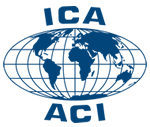Workshop on approaches to limiting urban sprawl: policies, planning, and governance (pre-conference workshop)
3 December 2019, Paris, France, workshop in conjunction with ILUS:
International Land Use Symposium 2019
Motivation
In general terms, urban sprawl denotes dispersed urban expansion at low density, or 'the uncontrolled spread of towns and villages into undeveloped areas' (EEA - European Environment Agency and FOEN - Swiss Federal Office for the Environment, 2016). Various more specific definitions of urban sprawl have been proposed in the literature.
The confusing diversity of definitions can pose a challenge to the quantification of urban sprawl. Existing methods for measuring urban sprawl can be grouped in terms of complexity: (1) Use of many variables in parallel, (2) integration of many variables, (3) measures based on one or a few variables. Due to the recent availability of more consistent digital land-cover and land-use data at higher resolution at the global, continental and national scale than ever before, these data offer new opportunities for measuring urban sprawl at higher spatial and thematic resolution and allowing for temporal comparisons.
The aim of the workshop on urban sprawl is to place the empirical results on the characteristics of Urban Sprawl into the planning, legal and economic context. The following questions guide the discussion: Which influential factors explain specific forms of Urban Sprawl? Which govermental measures and regulatory patterns are related to Urban Sprawl trends? How effective are the planning instruments to limit Urban Sprawl? Is Urban Sprawl not considered to be a big enough problem or is it smaller than expected in reality?
If you are interested in the Pre-Conference Workshop on Urban Sprawl and would like to participate, please contact the persons listed below by email.
Dr. Martin Behnisch
Leibniz Institute of Ecological Urban and Regional Development (IOER)
Weberplatz 1, 01217 Dresden, Germany
Email: m.behnisch[...]ioer.de
Prof. Dr. Jochen A.G. Jaeger
Concordia University Montréal, Dept. of Geography, Planning and Environment
S-H 1255-29, Henry F. Hall Building, 1455 De Maisonneuve Blvd. W.
Email: jochen.jaeger[...]concordia.ca
Organization
The workshop will take place at Université Paris Diderot.
The lecture room for the workshop is the room 454A, in the Condorcet building, 4th floor.
The lecture room adress is: 4 rue Elsa Morante, 75205 Paris cedex 13.
The Condorcet Building is in the University Paris Diderot campus, directly in front of the Buffon amphitheatre. You can easely located it using the http://ilus2019.ioer.info/venue/ link (it's the building (3)).
The workshop, including morning coffee and afternoon coffee, is sponsored by the international journal ISPRS International Journal of Geo-Information.
Lunch will be organised at the Buffon restaurant for workshop participants at their own expense. A drink and a coffee are included in the price of the lunch (16 Euro).
Program
Tuesday, 03 December 2019
Urban Sprawl at the planetary scale
Lectures: 25 Minutes + 15 Minutes Discussion
- 9:00-9:20
Welcome and Round of Introduction
- 9:20-10:00
Katherine Farrow (OECD, France):
Main Results of the OECD Study«Rethinking Urban Sprawl» and recommendations for controllingurban sprawl- 10:00-10:40
Martin Behnisch (IÖR, Germany), Tobias Krüger (IÖR, Germany) and Jochen Jaeger (Concordia University):
Global urban sprawl on the riseand need for limiting urban sprawl- 10:40-11:00
Coffee Break
Challenges to limiting urban sprawl
Impulse Lectures: 20 Minutes + 5 Minutes Discussion
- 11:00-11:25
Marc Barthelemy (Institut de Physique Theorique, France):
Review of theoretical approaches and challenges for modeling urban sprawl- 11:25-11:50
Rémi Lemoy (University of Rouen, France):
Urban economic theory and radial empirical analysis of many cities- 11:50-12:15
Bin Jiang (University of Gävle, Sweden):
Natural Cities Generated from All Building Locations in America- 12:15-12:40
Jochen A.G. Jaeger (Concordia University, Canada):
Considering limitations on a finite planet: Proposing quantitative targets and limits to urban sprawl- 12:40-13:00
Discussion and Outlook
- 13:00-14:00
Lunch (lunch at one's own expense)
National Planning Perspectives: Policies and Governance I
Keynote Lecture: 15 Minutes + 5 Minutes Discussion
- 14:00-14:20
Tomas Crols, Karolien Vermeiren, Inge Uljee and Lien Poelmans (Flemish Institute for Technological Research (VITO), Belgium):
What are the consequences of the policy target of no additional land take for urban settlement in Flanders (Belgium) by 2040 on the settlement pattern and on the costs related to it?- 14:20-14:40
Alice Colsaet (Institut du développement durable et des relations internationales, France):
Progress and limits of land take limitation in France – sustainable development and contradicting policies- 14:40-15:00
Stefan Fina (ILS Dortmund, Dortmund):
The Reception of Urban Sprawl Measurement Concepts in Planning Practice- 15:00-15:10
Discussion
- 15:10-15:30
Coffee Break
National Planning Perspectives: Policies and Governance II
Keynote Lecture: 15 Minutes + 5 Minutes Discussion
- 15:30-15:50
Eric Koomen (VU University Amsterdam, Netherlands):
Analysing and simulating urban density: Exploring the difference between policy ambitions and actual trends in the Netherlands- 15:50-16:10
Agnieszka Gajda (Poland):
Urban Sprawl in Poland. Scale of the problem and resulting challenges for public policies- 16:10-16:30
Jean-David Gerber (University of Bern, Switzerland):
The instruments of land policy: dealing with the densification challenge- 16:30-16:40
Discussion
- 16:40-17:00
Coffee Break
Round Table
- 17:00-18:00
Three Input Statements related to our three guiding questions (5 Minutes)
Guiding Questions:
How are policies and governance arrangements related to currenttrends in urban sprawl?
Mathias Jehling (IÖR, Germany): Linking Policy and Space
How effective are existing planning regulatory systems andpractices to limit urban sprawl?
Srinath Ravulaparthy (ComputationalUrban Sciences Group, Oak Ridge National Laboratory, USA): Equitybased planning and human decisions
What acitivities are needed to increase problem awareness abouturban sprawl?
Seraphim Alvanides (Northumbria University Newcastle,UK): Determinants of urban sprawl- 18:00-18:30
Discussion of the special issue: "Approaches to limiting urban sprawl:Policies, planning, and governance" (tbd.)
and wrap-up- 19:00-20:30
Dinner (optional), place tbd.
Further participants
Henríquez Ruiz, Cristián (Profesor Asociado, Instituto de Geografía Investigador Asociado CEDEUS, Secretario Académico, Facultad Historia, Geografía y Ciencia Política, Pontificia Universidad Católica de Chile)
Roshanak Afrakhteh, (PhD Student, Swiss Federal Research Institute (WSL))
Muhammad Salem, (PhD Student, TSURUSAKI Lab (Greater Kairo))
Judith Verstegen (Institute for Geoinformatics, University of Münster)
Apeksha Tare (Department of Spatial Economics, School of Business & Economics, Vrije Universiteit Amsterdam)
Itzhak Benenson (Tel-Aviv University, Geosimulation and Spatial Analysis Lab)
Maryame Amarouche (Doctorante laboratoire RIVES-ENTPE - UMR 5600 EVS - Cirad Art-Dev UMR 5281, Accueillie au Nederland Institute in Morocco)
Yulia Grinblat (PhD Student, Porter School of Environment and Earth Sciences, Geosimulation and Spatial Analysis Laboratory, Department of Geography and Human Environment
Faculty of Exact Sciences, Tel- Aviv University)
Narges Arab (PhD student in Gorgan University of Agricultural Sciences & Natural Resources in Iran, PhD visitor at Rennes 2 university in France)
Ramana Gudipudi (Postdoctoral Researcher, Urban Transformations Group, Research Department II - Climate Resilience, Potsdam Institute for Climate Impact Research (PIK), Potsdam)
Marie Sevenet (Researcher, EIFER, European Institute for Energy Research, Emmy-Noether-Str. 11,
76131 Karlsruhe, Germany )









